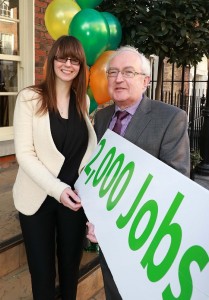Brown Bin Trial in Apartments
As part of the National Brown Bin Awareness Pilot in Sligo a separate project was done in June 2015 with apartments. The trial determined best practice to promote the segregation of food waste using a brown bin system in an apartment complex setting.
A short factsheet on the trial has been published and will act as a useful tool to implement brown bin collections in apartments.
The trial was kindly funded by Sligo County Council, Department of Communications, Climate Action and Environment, Novamont and Cré.
